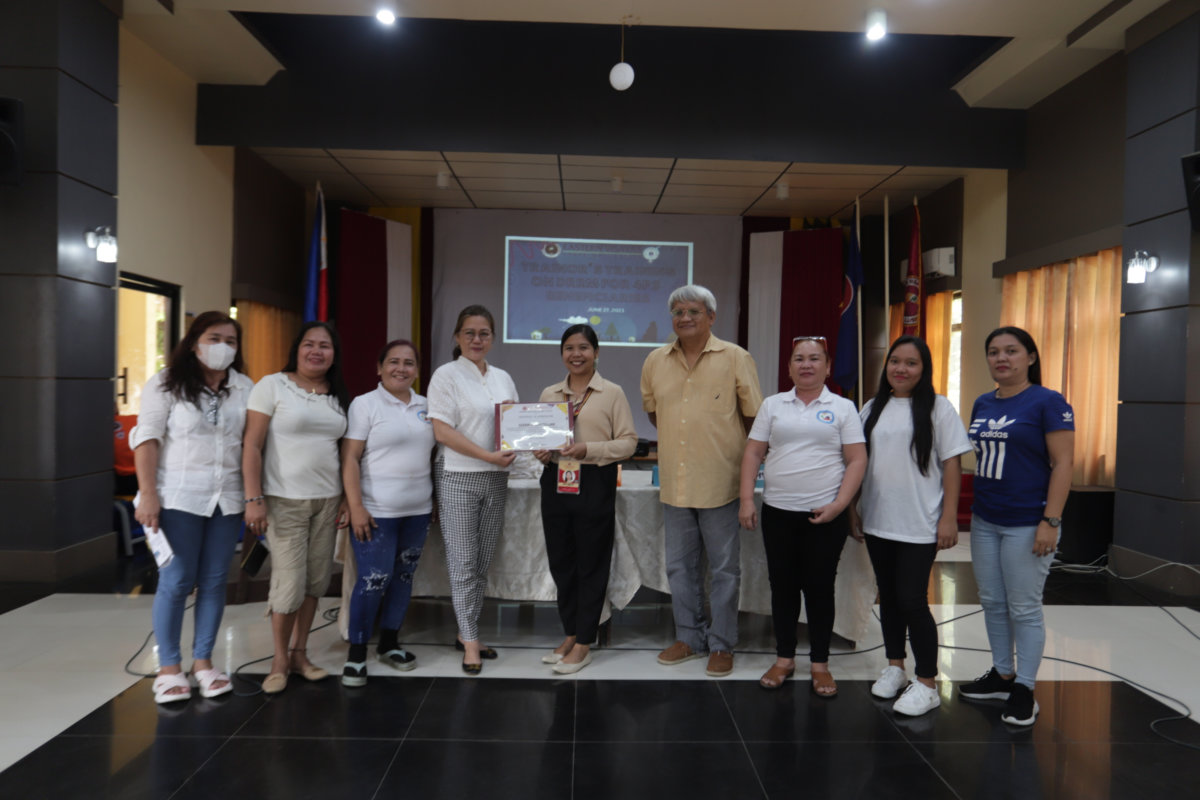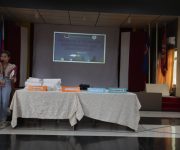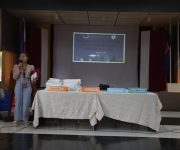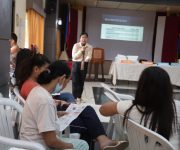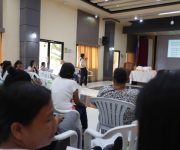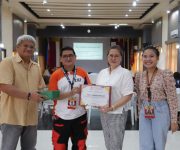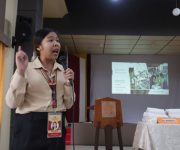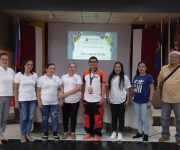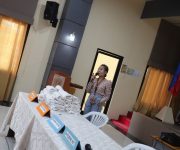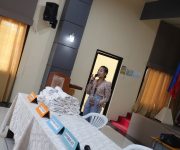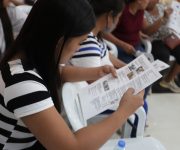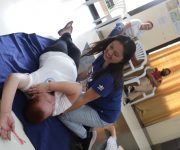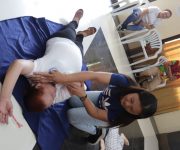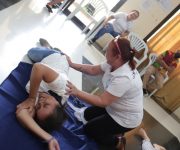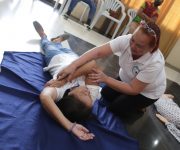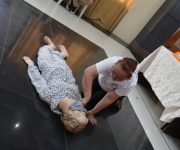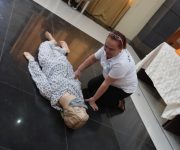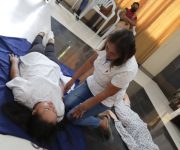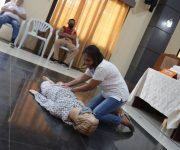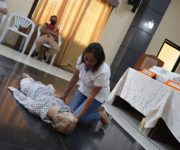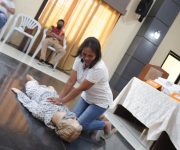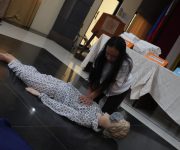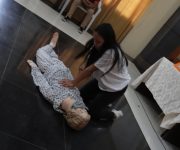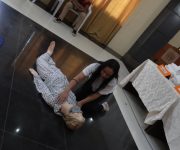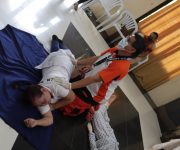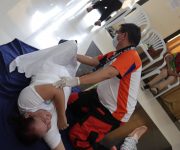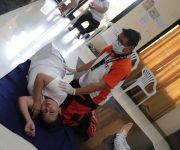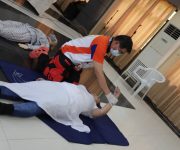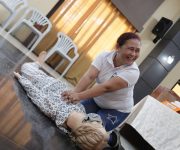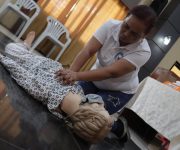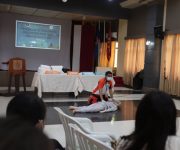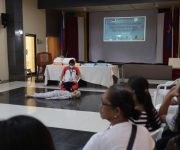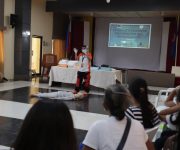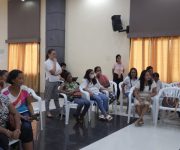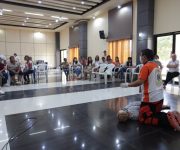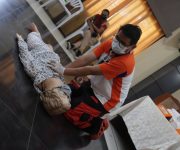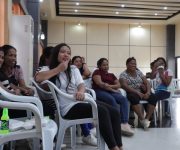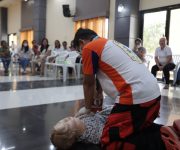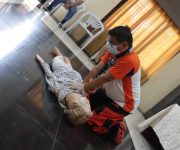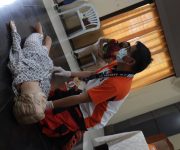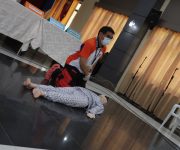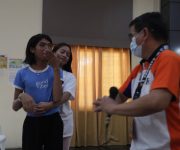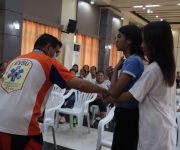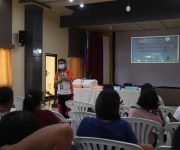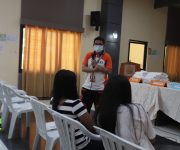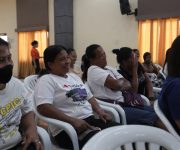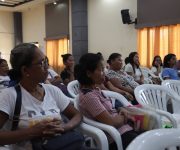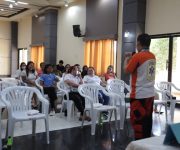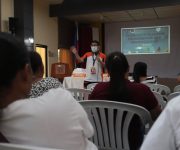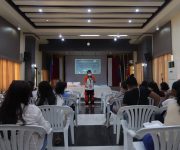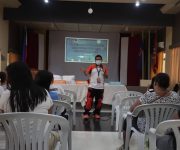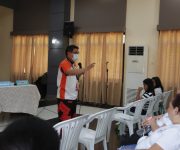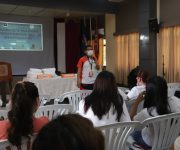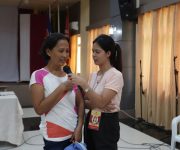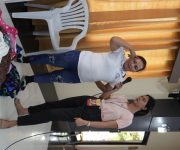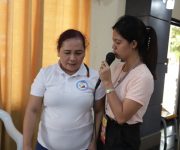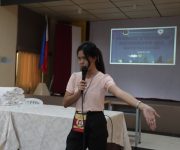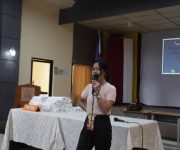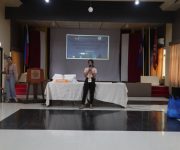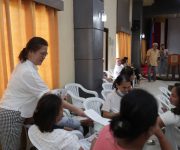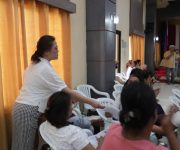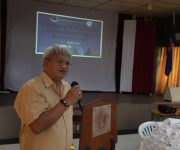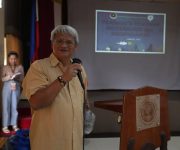The Gender and Development office, through the effort of Dr. Fatima Socorro M. Quianzon, perpetuates its legacy to raise the banner of gender equality and gender sensitivity as it reaches out community to effectuate a transformative landscape in relation to disaster preparedness, mitigation, and the recognition of the dynamic role of women in times of unprecedented times.
In this respect, the office imparted knowledge to the nearby community through a Trainor’s training on Disaster Risk Reduction Management for 4Ps beneficiaries on June 27, from 8:00 to 12:00 at the GS Function Hall.
Well-versed anent his knowledge on disaster management and risk reduction, Prof Charlie Ripalda centered his talk on First aid in times of Disasters. As disaster happens anytime and anywhere, everybody ought not to be caught off guard, and be ready for an immediate response. He went on to explicate some tips should a rescuer see a person unconsciously lying on the surface: assess the situation, check the airway, perform Cardiopulmonary Resuscitation (CPR), if necessary, activate medical assistance, call for help, if needed, among others.
Series of simulation had been performed, exemplifying the actual response operation in times of emergency. Meanwhile, Barangay Health Workers, Barangay Officials, and 4Ps Beneficiaries from nearby communities attended the event.
Zooming in on the pivotal role of women in disaster management, Prof. Izzem Santillan, College of Technology GAD Coordinator, succinctly conveyed the essential role of women in exigent circumstances.
She could not emphasize enough the importance of gender in disaster management, more so, that regardless of the gender, everyone can lend a hand. However, she asserted that girls and women are most vulnerable to being trafficked during disasters, thus, protection measures should be targeted to this group.
This was highlighted with the functional responsibilities that women do when need arises in the context of disaster and emergency response: search and rescue, shelter management, maintaining environmental health, solid and sewage proper disposal, food safety, and identification of needs.
With the integration of gender sensitivity and gender roles in environmental and natural disasters, disaster management may be fully achieved because of the cognizance with regard to ‘hows’ of life-saving skills.
The primary aim of this one- day activity is to equip women and young girls of the university’s nearby communities with the essential skills that will reduce risks, and bodily harm during disasters through lectures, simulation, and engaging activities that will strengthen disaster-related awareness and foster -procedural rescue operation in saving lives of those who are in state of need.
Engr. Dindo Obediencia, COE GAD Coordinator, underlined in his remarks the importance of responding to an emergency with a willful heart and humane service. “Kun maaabot an sitwasyon nga aaada kita, makakabulig gud kita; matatagan ta han mga nangigingahanglan hin first aid,” said Eng Obediencia .
GAD empowers communities by looking at the gender roles and gender equality and the dynamic interplay they execute in society; and this seminar- workshop on DRRM is designed to promote gender -inclusive DRRM program that will address the needs of the people.




